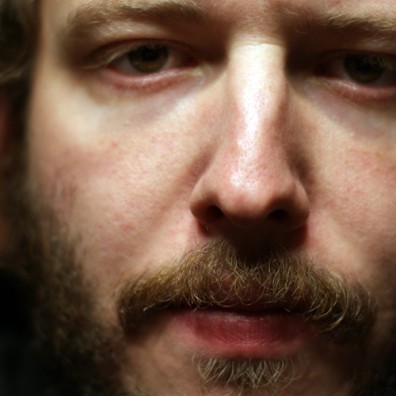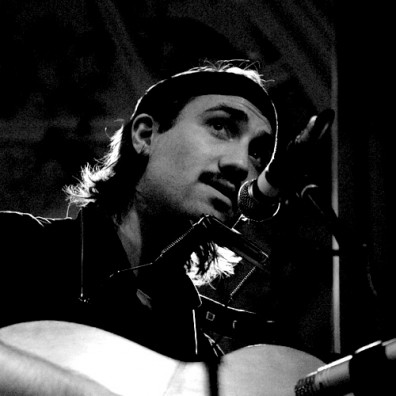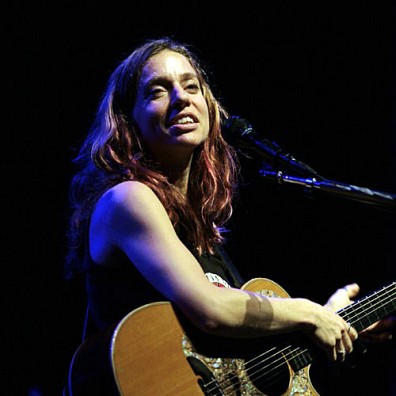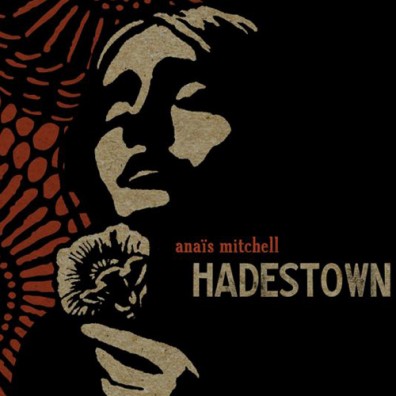Anais Mitchell HADESTOWN
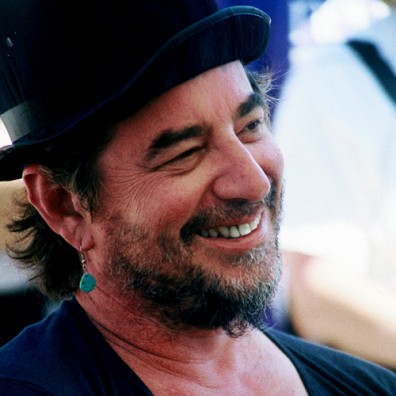
The first thing we recorded was Michael’s orchestral arrangements, and it was a powerful thing to hear them in the clarity of the studio rather than the rush of the stage. They positively soared. We recorded them with some incredible musicians mostly from Todd’s Brooklyn scene: Jim Black on drums, Michael of course on guitar and Todd on bass, Josh Roseman on trombone, Marika Hughes on cello, Tanya Kolmanovitch on viola, and at some point Rob Burger popped in and laid down some mind-boggling accordion and piano. We were in a beautiful and expensive studio so we had to act fast to record all twenty tracks or whatever it was. Todd is a great producer, able to hear everything at once, able to know if a take was “there” or not, able to encourage everyone to feel the same things, breathe together, breathe magic into things, even in studio world. He was marvelous in that stressful situation. Then he laid down all sorts of other instruments, sometimes following the notes of Michael’s score but in another “voice” or register, sometimes supporting the score from beneath with a lushness and weirdness. He recorded some very weird stuff: a glass orchestra, a trumpet player who mostly played percussively, and at one point he said something about how he was hunting for “vintage futurism” sounds. “Vintage futurism” is how I had once described the Hadestown story. Together we sorted through the vocals -from New Orleans, Iowa City, Eau Claire, Los Angeles, Vermont - at Todd’s home studio in Carroll Gardens. Todd is patient, totally discerning, and totally open at the same time.
I think it’s safe to say all three of us - Ben, Michael, and I - are pretty influenced by the work of Bertold Brecht and Kurt Weill. Brecht seems to approach the same tough theme in Threepenny Opera and Mother Courage: morality ceasing to exist in desperate conditions. “First you must feed us, then we’ll all behave…” ” When the Chips Are Down” is really kind of an homage to that idea. “You can have your principles/when you’ve got a bellyful.” To me this is also the whole theme of the Joker in The Dark Knight and maybe the other Batman movies I haven’t seen. The Joker sets up horrific little test scenarios with human subjects to try and prove that people who are scared and desperate will turn on their fellow man. It’s a tough theme because we all recognize that capacity in ourselves-but that’s not all we have a capacity for, as the Joker finds out.
To me the essence of “Why We Build the Wall” is, it’s meant to provoke the question. Take global warming to its terrifying logical conclusion and imagine part of the world becomes uninhabitable and there are masses of hungry poor people looking for higher ground. then imagine you are lucky enough to live in relative wealth and security, though maybe you’ve sacrificed some freedoms to live that way. When the hordes are at the door, who among us would not be behind a big fence? These conditions exist already, but most of us don’t have to acknowledge them in a real way. I really and truly had no specific place in mind when I wrote “Why We Build the Wall.” People often say, “Oh, that’s just like Israel/Palestine, or that’s just like the US/Mexico border,’” and maybe it is, but the song was written more archetypally.
One funny thing is, the first song ideas came as long ago as 2004-5. I didn’t get deep into it till ‘06 when we started working on the production, but in any case, the Depression-era stuff was part of the show long before the US economy tanked. I remember Ben and I watching Matewan together to get ideas about poverty, company towns, mining, etc. The whole show became uncannily relevant in the past year or so, which I didn’t expect. When I play Hadestown songs in my own shows, I usually introduce the show as quick as I can saying, “It’s based on the Orpheus myth, and set in a post-apocalyptic American Depression era …” At some point in the past year I noticed people were laughing pretty loud when I said that-it was so close to home! The real moral of Hadestown to me is, yes, we’re fucked, but we still have to try with all our might. We have to love hard and make beauty in the face of futility. That’s the essence of what Persephone sings at the end of the show: “Some birds sing when the sun shines bright / my praise is not for them, but the one who sings in the dead of night / I raise my cup to him.”
THE PLAYERS
All songs by Anaïs Mitchell, except the instrumentals:
PAPERS by Michael Chorney
and LOVER’S DESIRE (Traditional Afghani).
All songs arranged & orchestrated for sextet by Michael Chorney.
Additional instruments arranged by Todd Sickafoose.
Produced by Todd Sickafoose.
HADES - Greg Brown
PERSEPHONE - Ani DiFranco
ORPHEUS - Justin Vernon (of Bon Iver)
EURYDICE - Anaïs Mitchell
HERMES - Ben Knox Miller (of The Low Anthem)
FATES - The Haden Triplets (Petra, Rachel & Tanya)
CHORUS - The Original Hadestown Cast (listed on the following page)
Michael Chorney - acoustic guitar, prepared guitar
Anaïs Mitchell - acoustic guitar
Ben t. Matchstick - harmonica, voice
Jim Black - drums, percussion
Todd Sickafoose - bass, piano, pump organ
Tanya Kalmanovitch - viola
Marika Hughes - cello
Josh Roseman - trombone
Nate Wooley - trumpet
Rob Burger - accordion, piano
Miguel Frasconi - glass orchestra
Rich Hinman - pedal steel
Brandon Seabrook - four-string banjo, noise tapes, electric guitar
Jonathan Goldberger - electric guitar
Mike Dillon - vibraphone
Page: 1 2
|
|

|
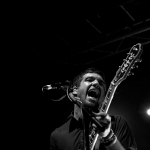
Taking Back Sunday |
LATEST GALLERY IMAGES
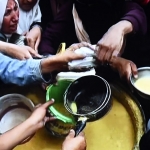
Famine in Gaza 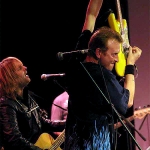
Mike Peters Remembered |
|
|


